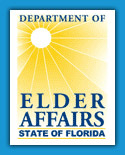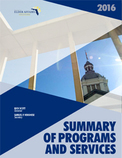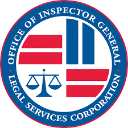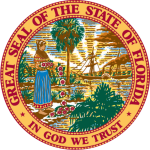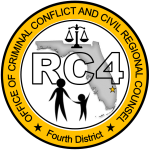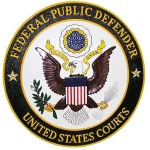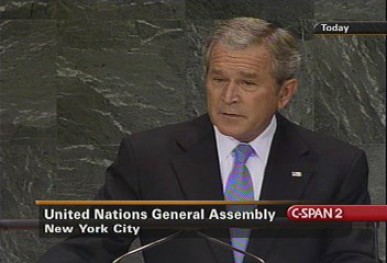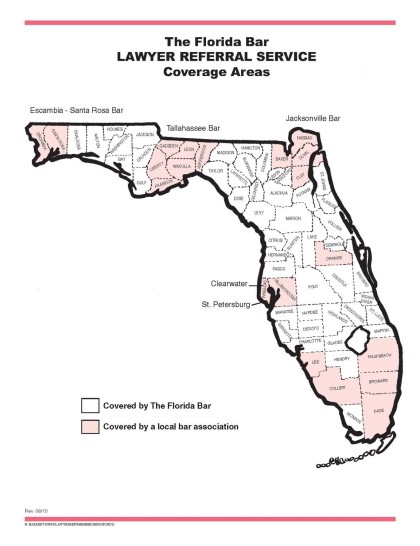Civil Right to Counsel
Why there should be a civil right to counsel.
by Neil J. Gillespie, a nonlawyer
On January 27, 2016 I emailed Sarah Halsell, J.D. Florida DOEA State Legal Services Developer
Dear Ms. Halsell,
Thank you for the information in your email. Unfortunately it is too late for Frank Collelo who died March 3, 2015 after collapsing in a Hillsborough County courtroom during a hearing on the foreclosure of his home.
I am an indigent/insolvent non-lawyer, unable to obtain adequate counsel, a vulnerable adult with disabilities, and a consumer of legal and court services affecting interstate commerce, a consumer of personal, family, and household goods and services, consumer transactions in interstate commerce. I have been determined indigent over 10 times in various courts, including the Supreme Court of the United States in Petitions 12-7747 and 13-7280.
On March 19, 2016 I will be 60 years old, and eligible for services under the Older Americans Act (OAA). That is 1 month and 21 days from now.
Currently my home, located at 8092 SW 115th Loop, Ocala, Florida 34481, in Marion County, Florida, is in foreclosure on a HECM reverse mortgage. A Home Equity Conversion Mortgage, or HECM, is a Federal Housing Administration (FHA) "reverse" mortgage program administered by the Secretary, United States Department of Housing and Urban Development (Secretary or HUD) to enable home owners over 62 years old access the subject home's equity. 12 U.S.C. § 1715z20 et seq. and 24 C.F.R. Part 206.
The bank made me and my younger brother co-borrowers on the HECM because the only borrower over 62 was my 78 year-old mother, and mom was incompetent due to Alzheimer’s dementia, unfortunately.
A HECM does not require a homeowner to make mortgage payments as a conventional mortgage does. Instead, a HECM does not become due and payable until the last surviving homeowner dies or no longer lives in the home. 12 U.S.C. § 1715-z20(j) Safeguard to prevent displacement of homeowner. The HECM becomes due and payable in full "if a mortgagor dies and the property is not the principal residence of at least one surviving mortgagor....and no other mortgagor retains title to the property." 24 C.F.R. § 206.27(c).
I am alive and living in the home located at 8092 SW 115th Loop, Ocala, Florida 34481, in Marion County, Florida. My younger (and only) brother lives in Texas.
My foreclosure case is Reverse Mortgage Solutions, Inc., vs. Neil J. Gillespie et al. Marion County Florida, Fifth Judicial Circuit, no. 42-2013CA-000115-AXXX-XX.
- I removed the case to U.S. District Court no: 5:13-cv-00058-WTH-PRL.
- The appellate case is the U.S. Court of Appeals for the Eleventh Circuit, No. 13-11585-B.
- The SCOTUS petition for writ of certiorari was Petition No. 13-7280. The petition and petition for rehearing were denied, which is not a judgment on the merits.
However the SCOTUS granted my motion to proceed in forma pauperis, which was denied by the U.S. District Court. So I prevailed on my motion to proceed in forma pauperis under 28 U.S.C. § 1915(e)(2) denied by the U.S. District Court, in a Report and Recommendation by Magistrate Judge Philip R. Lammens, and later by U.S. Senior Judge William Terrell Hodges.
The U.S. Eleventh Circuit in No. 13-11585-B allowed me leave to file a separate petition for writ of mandamus or prohibition under 28 U.S.C. § 1651, the all writs act, and Fed.R.App.P.21. Chief Judge Ed Carnes blocked my access to court by and through the Clerk when I started that process.
I made a complaint to HUD, which HUD referred to the Consumer Financial Protection Bureau (CFPB), Complaint No. CFPB 120914-000082. A second complaint was made sua sponte by the Staff (not the Senator) of U.S. Senator Marco Rubio, Complaint No. CFPB 140304-000750.
The second CFPB complaint is still open, and my comment is profiled on the CFPB website, http://www.consumerfinance.gov/blog/consumer-advisory-three-steps-you-should-take-if-you-have-a-reverse-mortgage/
"Neil Gillespie: Avoid reverse mortgages, they are very complicated, and once you sign up, the bank dictates every thing, and you have NO RIGHTS. Yes, you can hire a lawyer, provided you can afford $350 per hour, plus expenses, court costs, etc. Better have $50,000 handy - to start. I made two complaints to the CPFB, Complaint No. 120914-000082, and Complaint No. 140304-000750. Bank of America quashed both of them, one by an inside job, the second by US Senator Marco Rubio.
For years Bank of America mislead me about "privacy" wrongly asserted for my deceased mother, a co-borrower. Then I learned privacy laws do not protect the privacy of dead people. Dead people do not have privacy rights. Privacy rights are personal and die with the individual. Nestor v. Posner-Gerstenhaber, 857 So. 2d 953 (Fla. Dist. Ct. App. 3d Dist. 2003), review denied, 869 So. 2d 540 (Fla. 2004). [E]even where a private confidentiality agreement is otherwise proper, it will not be enforced where its effect becomes obstructive of the rights of non-parties. See, e.g., Nestor v. Posner-Gerstenhaber, 857 So. 2d 953, 955 (Fla. 3rd DCA 2003); Scott v. Nelson, 697 So. 2d 1300, 1301 (Fla. 1st DCA 1997). Quoted by U.S. Judge John E. Steele in Tardif, Trustee (Jason Yerk) v. PETA, USDC, SD Fla. Fort Myers Div. Case No. 2:09-cv-537-FtM-29SPC, at the Pacer link, Case 2:09-cv-00537-JES-SPC Document 179 Filed 11/04/11 Page 14 of 31 PageID 6050
You can read my motion to reconsider filed in the U.S. Eleventh Circuit Court of Appeals, http://www.scribd.com/doc/228311060/Motion-to-Reconsider-Vacate-Modify-Order-C-a-11-No-13-11585-B
The Court denied the motion, but said I could submit a petition under 28 USC 1651, the all writs act, but changed its mind when I started that process. I still have time to appeal, and may do so. The CFPB is well-intentioned, but it has little power against corrupt banks and judges. My name is Neil J. Gillespie, 8092 SW 115th Loop, Ocala, Florida, 34481, neilgillespie@mfi.net, 352-854-7807. If Director Richard Cordray gets this message, I am willing to provide additional information. I believe in the mission of the CFPB, but found bad banks and bad judges are too powerful for an ordinary person to get fair treatment. Thank you."
You wrote, "To access OAA Title IIIB legal services, an individual may contact the Aging and Disability Resource Center (ADRC) which serves the area of the state where the individual is located, or contact the Elder Helpline for referral. A map of the ADRCs is available on the DOEA website at http://elderaffairs.state.fl.us/doea/arc.php" (The full documents are below in PDF)
How Frank Collelo was entitled to counsel under the OAA
Email from Sarah K Halsell DOEA Jan-26-2[...]
Adobe Acrobat document [36.0 KB]
Response email Neil J. GIllespie to Ms. [...]
Adobe Acrobat document [49.4 KB]
AMENDED DECLARATION OF NEIL J. GILLESPIE[...]
Adobe Acrobat document [1.1 MB]
The Florida Department of Elder Affairs is the primary state agency administering human services programs to benefit Florida’s elders. Click the links provided for information on our programs, services, and current initiatives. Read more
DOEA Management Team
2016 Summary of Programs and Services
In 2005, the Department of Elder Affairs created the Elder Rights Unit, which oversees Title VII programs including...Legal Services Development...a Senior Legal Helpline that provided free legal advice and brief services by telephone to eligible Florida residents age 60 and older for civil (not criminal) legal problems.
Federal Older Americans Act (OAA), Fla. DOEA Program
Older Americans Act
Wikipedia
The Older Americans Act of 1965 (Pub.L. 89–73, 79 Stat. 218) was the first federal level initiative aimed at providing comprehensive services for older adults. It created the National Aging Network comprising the Administration on Aging on the federal level, State Units on Aging, and Area Agencies on Aging at the local level.[1] The network provides funding - based primarily on the percentage of an area's population 60 and older - for nutrition and supportive home and community-based services, disease prevention/health promotion services, elder rights programs, the National Family Caregiver Support Program, and the Native American Caregiver Support Program.[2]
The United States Statutes at Large 79 Stat. 218 was signed into law by the thirty-sixth President of the United States Lyndon Johnson on July 14, 1965.[3]
In 2006 congress reauthorized the act in its entirety, effective through FY 2011.[4] Read more
42 U.S. Code Chapter 35 - PROGRAMS FOR OLDER AMERICANS
Older Americans Act (OAA) 42 U.S.C. 3001 et seq.
Florida Statutes, Chapter 430 Elder Affairs
F.S. sec 430.101 Administration of federal aging programs
F.S. sec 20.41 Department of Elderly Affairs
OAA Title III programs are 100 percent federally funded.
Older Americans Act (OAA) - Title III B Services or Activities
Title III B: Provides supportive services to enhance the well-being of elders and to help them live independently in their home environ-ment and the community. Funds are allocated to Area Agencies on Aging, which contract with service providers to deliver supportive services such as...legal services... residential repair/renovation, and health support. (page 61)
Sarah Halsell, J.D.
Florida DOEA State Legal Services Developer
(850) 414-2389
halsellsk@elderaffairs.org
__________________________________________
Legal Assistance—Title III-B Providers
Administration on Aging (AoA)
Requirements For Recipients of
Title III Older Americans Act Funds
Older Americans Act, Background and Overview
Congressional Research Service R43414, March 15, 2016
Older Americans Act, Background and Overview
Congressional Research Service R43414, May 2, 2016
The Older
Americans Act (PDF)
AARP Public Policy Institute
Older Americans Act, Title III, Nutrition Services
Program
Congressional Research Service RS21202, June 17, 2011
Basics OlderAmericansAct_07-09-10
Basics OAA Programs and Funding
Aging in Place: Do Older Americans Act Title III Services Reach Those Most Likely to Enter Nursing Homes, AoA_1_NursingHomes_041311
Older Americans Act: FY2015 Appropriations Overview
Congressional Research Service
Funding for the Older Americans Act and Other Aging Services
Programs, CRS, February 22, 2013
Administration on Aging (AoA) Older Americans Act
National Council on Aging (NCOA) Older Americans Act
Pro se homeowner dies after collapsing in court
Barrier to Justice-Death of pro se litig[...]
Adobe Acrobat document [899.7 KB]
Valrico man dies after collapsing in court
Tampa Bay Times
By Rachel Crosby, Times Staff Writer
Tuesday, March 3, 2015
TAMPA — A 67-year-old Valrico man died Tuesday morning after collapsing in a Hillsborough courtroom during a hearing on the pending foreclosure of his home.
Frank Collelo was with his wife, Antoinette Collelo, 57, when he fell to the floor in the Hillsborough County Circuit courtroom of Judge Wayne S. Timmerman around 9 a.m., according to Cristal Bermudez, a public information officer with the Hillsborough sheriff's office.
Bermudez said deputies administered CPR to Collelo in court until emergency services arrived and transported Collelo to Tampa General Hospital. He was pronounced dead there around 9:45 a.m.
Medical calls in court are common, said Maj. Jim Livingston, with the sheriff's court operations division. But in the nearly six years Livingston has worked at the court, he doesn't remember a death.
"Obviously, there's a lot of stress here,'' he said. "It's not uncommon to have EMS here a couple of times a week, sometimes a couple of times a day."
Collelo's house went into foreclosure last year. The property was in his possession following a divorce in 2010.
The county medical examiner had not yet determined a cause of death. Read more
- Frank Joseph Collelo Obituary
Letter to Mary Mainland, M.D. Chief Medi[...]
Adobe Acrobat document [1.2 MB]
Response by Danielle R. Green, Senior As[...]
Adobe Acrobat document [157.5 KB]
The American Bar Association (ABA) recently added a "Civil Right to Counsel" page, "Law Governing Appointment of Counsel in State Civil Proceedings", with 50 research reports, one for each state detailing existing authority for appointment of counsel in various types of civil proceedings. There is an Appendix: International Law Relating to Appointment of Counsel in Civil Proceedings. United States v. Duarte-Acero, 208 F. 3d 1282 (11th Cir. 2000) is a case about International Law in Florida and the U.S. Eleventh Circuit.
ABA - Legal Aid and Indigent Defendants [...]
Adobe Acrobat document [107.4 KB]
ABA-FORWARD Directory, Appointment of Co[...]
Adobe Acrobat document [323.3 KB]
From the Forward: "It is a commonplace for courts throughout the United States to announce, "there is no right to counsel in civil cases in this state." Yet, in truth, in every state there are at least a few categories of civil cases in which indigent litigants have a right to counsel. Indeed in some jurisdictions there are many such rights. It also is not unusual for state law to grant judges a discretionary power to appoint counsel for such litigants in still other kinds of cases, or even for all civil cases."
ABA-ACKNOWLEDGMENTS Directory, Appointme[...]
Adobe Acrobat document [318.3 KB]
ABA-INTRODUCTION Directory, Appointment [...]
Adobe Acrobat document [268.8 KB]
ABA-2014 FLORIDA Directory, Appointment [...]
Adobe Acrobat document [166.3 KB]
29.007 Court-appointed counsel (2015).pd[...]
Adobe Acrobat document [22.6 KB]
ABA-APPENDIX Directory, International La[...]
Adobe Acrobat document [626.3 KB]
ABA - Resource Center for Access to Justice Initiatives
The Toolkit includes in one package the "ABA Basic Principles for a Right to Counsel in Civil Proceedings" and "The ABA Model Access Act," which provide two important tools for jurisdictions seeking to implement a civil right to counsel.
For additional information regarding civil right to counsel issues, please visit: National Coalition for a Civil Right to Counsel
- Civil Legal Services
- Research Legal Needs
- Resource Center for Access to Justice Initiatives
- Indigent Defense
- Language Access
Gideon at 50 - the 50th Anniversary of Gideon v. Wainwright
ABA Toolkit, Right to Counsel Civil Proc[...]
Adobe Acrobat document [526.0 KB]
- ABA the 50th Anniversary of Gideon v. Wainwright
- Human Rights in the U.S. Handbook for Legal Aid Attorneys
- Fifty Years Later The Legacy of Gideon v. Wainwright
- US DOJ: How to Make a Civil Rights Complaint
- National Coalition for a Civil Right to Counsel
Legal Services Corporation (LSC)
Legal Services Corporation Wikipedia
How Legal Aid Works
Legal Services Corporation (LSC) is an independent nonprofit established by Congress in 1974 to provide financial support for civil legal aid to low-income Americans. LSC promotes equal access to justice by providing funding to 134 independent non-profit legal aid programs in every state, the District of Columbia, and U.S. Territories. LSC grantees serve thousands of low-income individuals, children, families, seniors, and veterans in 813 offices in every congressional district. Read more about the vital role legal aid plays in a just America. Read more
- Community Legal Services of Mid-Florida, Inc.
- Florida Rural Legal Services, Inc.
- Legal Services of Greater Miami, Inc.
- Legal Services of North Florida, Inc.
- Bay Area Legal Services, Inc.
- Three Rivers Legal Services, Inc.
- Coast to Coast Legal Aid of South Florida, Inc.
Legal Services Corporation Facebook
The State Justice Institute (SJI) is a private, nonprofit corporation that awards grants to improve judicial administration in the state courts of the United States.
It was created by the State Justice Institute Act of 1984 Wikipedia (42 U.S.C. ch. 113, 42 U.S.C. § 10701 et seq.).
It is governed by an 11-member Board of Directors appointed by the President and confirmed by the Senate, including six state court judges, one state court administrator, and four members of the public (no more than two of whom may be of the same political party). The Executive Director is responsible for the executive and administrative operations of SJI, is a non-voting ex officio member of the Board, and serves at the pleasure of the Board. Read more
SJI Newsletter December 2015
14-07-21LHRLHandbook_FullDraft.pdf
Adobe Acrobat document [2.5 MB]
- The Philadelphia Bar’s Civil Gideon Corner
"The legal community and public often ask, "What does ‘civil Gideon’ mean?" In the landmark United States Supreme Court case of Gideon v. Wainwright, 372 U.S. 335 (1963), the Supreme Court decided that indigent defendants have a constitutional right to be represented by an attorney, at no charge, in state criminal cases. The term "civil Gideon" refers to a growing national movement that has developed to explore strategies to provide legal counsel, as a matter of right and at public expense, to low-income persons in civil legal proceedings where basic human needs are at stake, such as those involving shelter and child custody."
- Legal Information Institute, Gideon v. Wainwright
- Wikipedia, Gideon v. Wainwright
Sixth Amendment to the US Constitution:
"In all criminal prosecutions, the accused shall enjoy the right to a speedy and public trial, by an impartial jury of the State and district wherein the crime shall have been committed, which district shall have been previously ascertained by law, and to be informed of the nature and cause of the accusation; to be confronted with the witnesses against him; to have compulsory process for obtaining witnesses in his favor, and to have the Assistance of Counsel for his defence." Wikipedia
Freedom Riders for Civil Rights (1961), left
- Legal Services Corp, Documenting the Justice Gap
- Right to counsel Wikipedia
- National Legal Aid Defender Association History
...........The Americans With Disabilities Act - ADA.............
ADA One Avenue to Appointed Counsel Civi[...]
Adobe Acrobat document [254.9 KB]
EEOC: Reasonable Accommodations for Attorneys with Disabilities.
The ADA: One Avenue to Appointed Counsel re Civil Gideon (PDF)
The Americans With Disabilities Act (ADA) Cornell University
42 U.S. Code Chapter 126 - EQUAL OPPORTUNITY FOR INDIVIDUALS WITH DISABILITIES
The ADA Amendments Act 2008 US Government Printing Office
Florida Commission on Access to Civil Justice
Sandy D’Alemberte wrote about the right to legal representation in civil cases in his law review Tributaries of Justice: The Search For Full
Access, 25 Fla. St. U. L. Rev 631, Section V. Tributary
Four: A Civil Gideon Fund From A Service Tax On For-Profit Legal Services.
"Some court opinions hint that access to legal representation in civil cases might be a constitutional entitlement. footnote 58, See In re Amendments to Rules Regulating
The Florida Bar—1-3.1(a) and Rules of Judicial Administration—2.065 (Legal Aid), 598 So. 2d 41, 43 (Fla. 1992) (noting that "the right to counsel is no longer limited to criminal
cases")."...
In Re Amendments to Rules, 598 So. 2d 41 (Fla.
1992)
Pro Bono Primer for Florida
Lawyers (PDF), The Florida Bar
The Florida Bar Journal, Pro Bono Services in Florida, April, 1999 Volume LXXIII, No. 4, by VanNortwick, Spuhler and Doyle.
Related, Lawyer Regulation in Florida
ABA: Why not let nonlawyers help regulate the legal profession?
Prof. James Moliterno: The Trouble With Lawyer Regulation
Florida Justice Administrative Commission (JAC)
The Justice Administrative Commission (JAC) is governed by Title V Judicial Branch, Chapter 43, Florida Statutes, Section 43.16 Justice Administrative Commission; membership, powers and duties. Also see Title V, Chapter 27 of the Florida Statutes, Part III and Part IV.
Justice Administrative Commission website
Alton L. "Rip" Colvin, Jr., Executive Director
Justice Administrative Commissioners
Regional Counsel Contact Information
The Justice Administrative Commission (JAC), created in 1965, provides administrative services on behalf of 49 judicial related entities.
Currently, the JAC administratively serves 20 Offices of State Attorney, 20 Offices of Public Defender, 3 Offices of Capital Collateral Regional Counsel, 5 Offices of Criminal Conflict and Civil Regional Counsel, and the Statewide Guardian ad Litem Program. Services provided are primarily in the areas of accounting, budget, financial services, and human resources.
The JAC also provides compliance and financial review of billings for services provided by private court-appointed attorneys representing indigent citizens and associated due process vendors.
The Commission is comprised of two State Attorneys, appointed by the Florida Prosecuting Attorneys Association, and two Public Defenders, appointed by the Florida Public Defender Association. The Commission appoints an Executive Director, who is charged with oversight of necessary staff to efficiently and effectively carry out the JAC's duties.
Our Vision: To be a model of exemplary state government and provide unparalleled services.
Our Mission: To be responsible stewards of taxpayer dollars, while providing the highest quality service to the 49 judicial related entities, private court-appointed counsel, and associated vendors we serve, by ensuring compliance with laws, rules, regulations, and best business practices.
JAC's Core Values: We take great pride in excellence in service, innovation, adaptability, collaboration, honesty, integrity, accountability, and diversity, as well as respectful and ethical conduct, and fiscal responsibility. Read more
Jeffrey E. Lewis, Regional Counsel
1st DCA Region
Office of Regional Counsel, 1st District
227 N. Bronough Street
First Floor Suite 1125
Tallahassee, FL 32301
Tel: 850-922-0179
Fax: 850-922-9970
Ita M. Neymotin, Regional Counsel
2nd DCA Region
Office of Regional Counsel - 2nd District
2101 McGregor Blvd Ste 101
Fort Myers, FL 33901-3411
Office: 239-208-6925 x1056
Fax: 239-963-1534
Letter to Ita M. Neymotin, Regional Coun[...]
Adobe Acrobat document [415.9 KB]
OCCCRC -- Office of Criminal Conflict and Civil Regional Counsel
OCCCRC -- The Five Regional Counsels
I. Background
The five Regional Counsel offices were created by the legislature (Statute 27.511) in 2007 to provide legal representation to indigent persons in basically three classes of cases:
1) criminal conflict cases that the court grants the Public Defender's motion to withdraw and appoints the OCCCRC,
2) dependency and civil cases, and
3) certain statutorily authorized civil commitment proceedings. OCCCRC also handles appeals and post conviction motions.
As noted under Statute 27.511, the Florida Legislature states "it is the intent of the Legislature to provide adequate representation in a fiscally sound manner, while safeguarding constitutional principles."
Over the last few years, the Regional Counsel offices have saved Florida taxpayers millions of dollars while providing quality representation to its clients.
II. Types of Cases Handled by the Agency (Per Statute 27.511):
A. Conflict Cases:
Under arrest for, or charged with:
1. A Felony
2. A misdemeanor
3. Criminal Traffic
4. Criminal contempt; or
5. A violation of a special law or county or municipal ordinance ancillary to a state charge, or if not ancillary to a state charge, only if the office of criminal conflict and civil regional counsel contracts with the county or municipality to provide representation pursuant to ss. 27.54 and 125.69.
6. Alleged to be a delinquent child pursuant to a petition filed before a circuit court;
7. Sought by petition filed in such court to be involuntarily placed as a mentally ill person under part I of chapter 394, involuntarily committed as a sexually violent predator under part V of chapter 394, or involuntarily admitted to residential services as a person with developmental disabilities under chapter 393;
8. Convicted and sentenced to death, for purposes of handling an appeal to the Supreme Court; or
9. Is appealing a matter in a case arising of the above
B. Primary Representation
1. Guardianship (s. 393.12, Chapter 744)
2. Dependency (Chapter 39)
3. Parental Notification Act (Chapter 390)
4. Tuberculosis Control (Chapter 392)
5. Marchman Act (Chapter 397)
6. Adult Protective Services (Chapter 415)
7. Disability Of Nonage Of Minors Removed, (Chapter 743)
8. Children And Families In Need Of Services (Chapter 984)
III. Districts
The agency is broken into five main offices, based on the Florida District Courts of Appeals.

Eugene Zenobi, Regional Counsel
3rd DCA Region
Office of Regional Counsel, 3rd District
401 NW 2nd Ave, Suite S-310
Miami, FL 33128
Phone: 305-679-6550
Fax: 305-679-6560
Antony Ryan, Regional Counsel
4th DCA Region
Office of Regional Counsel, 4th District
401 S. Dixie Highway, Suite 200
West Palm Beach, FL 33401
Phone: 561-837-5156
Fax: 561-837-5423
Jeffrey D. Deen, Regional Counsel
5th DCA Region
Office of Regional Counsel, 5th District
101 Sunnytown Road, Suite 310
Casselberry, FL 32707
Phone: 407-389-5140
Fax: 407-389-5139
Federal Public Defender
Middle District of Florida
Offices of the Federal Public Defender for the Middle District of Florida: Ft. Myers, Jacksonville, Ocala, Orlando, and Tampa.
Donna Lee Elm is the Federal Defender, appointed by the Eleventh Circuit Court of Appeals. Her term expires September 8, 2016. Elm seeks reappointment. The public can comment on reappointment of Donna Elm for Federal Defender until December 21, 2015. Donna Lee Elm was quoted in a story by the Tampa Bay Times:
"He didn't have to do this," said Donna Lee Elm, federal public defender for the Middle District of Florida.
"I'm the head of a federal agency. We have plenty of money. He excelled in school and everything else he undertook. This was a kid who was going somewhere. He was going to accomplish things. He had options...
Rick Carey - Assistant Federal Public Defender (Ocala Office)
Bonnie Timmons - Administrative Assistant
U.S. District Court, Middle District Florida Criminal Justice Act page. Link to CJA application for the Middle District of Florida
The Defender Services Office Training Division furthers the right to effective assistance of counsel by providing training and other resources to attorneys appointed under
The Independence Imperative
Federal Indigent Defense 2015 The Indepe[...]
Adobe Acrobat document [2.4 MB]
Report: Judges Have Too Much Control In
Public Defense System
NPR - National Public Radio
September 09, 2015
A tough new report has concluded that the federal government's system for defending poor people needs to change. The nearly two-year study by the National Association of Criminal Defense Lawyers said judges who are supposed to be neutral arbiters too often put their fingers on the scales.
The report said defense lawyers for the poor who work in the federal court system need more resources to do their jobs. That means money, not just for themselves, but to pay for experts and investigators.
"Having good, fully resourced defense counsel with access to ancillary services is an absolute must in a society that is arresting 14 million people a year," said Norman Reimer, executive director of the NACDL.
In an adversary system, lawyers for poor defendants say, they need to operate on equal footing with prosecutors. But the study, the first of its kind in more than 20 years, found the source of most concern rests with judges who exercise too much control over the process.
Bonnie Hoffman, a deputy public defender in Virginia, led the task force.
"There's some significant ways we feel the federal system is not measuring up — most importantly, in the area of independence," Hoffman said.
That's because judges are in charge. They have a role in selecting the defense lawyers for the poor clients who appear in court. They act as umpires during a plea hearing or a trial. And then those same judges approve or reject the defense lawyers' fee requests.
"It's a shame to think that somebody agrees to do this work, they do the work that they're asked to do ... to be a zealous advocate for somebody who's accused of a crime," Hoffman said, "and then when they finish that somebody can come back and say, 'I know you did good work ... but we don't feel like we should pay you for all the work that you did.' "
That concern extended to dozens of people who spoke to Hoffman and others only on the condition of anonymity, for fear that their livelihoods would be hurt if they shared their experiences too openly.
One unnamed lawyer said he can drive five or six hours to visit a prisoner to help prepare a defense, but judges in his area are "reluctant" to pay for those hours on the road. In another case, a lawyer reported a magistrate, or lower-level judge, had called him and asked him to slash 10 percent from his fees. The payment paperwork had been "misplaced" for over a year, the report said.
In many cases, judges cut fees without explanation. And there's no way to appeal.
"It's just not a good situation to have the judge that you're appearing before have that much control over your practice, over ultimately how you represent your client," said Gerry Morris, a longtime defense attorney in Texas and the president of NACDL.
The new report doesn't offer a clear solution to the independence problem. But Morris pointed out that the chief administrative body of the U.S. courts has launched its own study of the system for representing poor defendants.
Morris said he hopes that panel will take defense lawyers into account. The report said the committee includes three defense lawyers and six judges. Read more
2014-14 Modification of Pro Se Represent[...]
Adobe Acrobat document [41.5 KB]
_____________________________________________________
United States District Court, Southern District of Florida
Volunteer Opportunities and Pro Bono Assistance
For Attorneys
For Attorneys Available Cases
Pursuant to recently adopted Administrative Order 2014-14, the Court is revamping its process for obtaining pro bono counsel for pro se litigants. Please check back in the near future for further information. In the meantime, inquiries should be directed to FLSD_ProBono@flsd.uscourts.gov.
For Attorneys Register for the Court’s Pro Bono Panel List
For Attorneys Assistance with Litigation Expenses
For Attorneys Other Resources
_____________________________________________________
For Pro Se Litigants
For Pro Se Litigants How to Request a Volunteer Attorney
If you are a pro se litigant and seek the assistance of an attorney, you may request to participate in the Court’s volunteer attorney program by submitting a request directed to the Judge in your case. Keep in mind that there is no entitlement to the appointment of counsel. But the Court in its discretion may direct that your case be placed on a list of available cases for consideration by volunteer attorneys.
- To request a volunteer attorney
- click here to print out the request form.
Please mail the form to:
United States District Court, Southern District of Florida
Attention: Intake for docketing
400 North Miami Avenue, Room 8N09
Miami, Florida 33128
- For Pro Se Litigants
- Other sources for finding pro bono counsel
- For Pro Se Litigants
- Motion For Referral To Volunteer Attorney Program
Florida Federal Judicial Nominating Commission 2015-2017
THE FLORIDA BAR - JNC News Releases. Current Judicial openings and application instructions are listed in these news releases.
Judicial Nominating Commission (JNC) Applications & Members
Judicial merit selection is a way of choosing judges through appointment, using a nonpartisan nine-member commission of lawyers and non-lawyers to locate, recruit, investigate, and evaluate applicants for judicial office. These Judicial Nominating Commissions (JNCs) then submit three to six names of the most highly qualified applicants to the Governor, who must make a final selection from the list. Each Judicial Nominating Commission has nine members. Five members are appointed directly by the Governor, and the Bar sends nominations to the Governor to fill the remaining four spots. Read more
- Judicial and JNC applications
- Judicial Nominating Commission Member List
- Florida Judicial Nominating Commissions
- Florida Federal Judicial Nominating Commission
- Judicial Nominating Procedures Committee
RulesAddendum05AUG07.pdf
Adobe Acrobat document [52.7 KB]
U.S. Circuit Chief Judge
United States Court of Appeals
Eleventh Circuit
Judges - The Eleventh Circuit Court of Appeals is made up of Active Judges and judges who retired to Senior Status but remain on the bench. The Eleventh Circuit has twelve authorized active judgeships. Vacant seats on the Court are filled by Judges appointed by the President of the United States of America.
- Criminal Justice Act U.S. Eleventh Circuit Court Appeals
- 18 U.S.C. § 3006A Adequate representation of defendants
ADDENDUM FIVE
NON-CRIMINAL JUSTICE ACT COUNSEL APPOINTMENTS
The court adopts these provisions for furnishing representation for persons financially unable to obtain adequate representation in cases and situations which do not fall
within the scope of 18
U.S.C. § 3006A, as amended – but in which the court believes that the interests of justice will be served by the presence of counsel.
(a) Determination of Need.
In determining need for appointment of counsel, the court shall generally be governed by the guidelines outlined in 18 U.S.C. § 3006A.
(b) Appointment of Counsel.
(1) Counsel shall be selected from the same panels of attorneys designated or approved by the district courts of the Eleventh Circuit as described in Addendum Four, which
are hereby
approved by this court, or from a bar association, legal aid agency, or other approved organization. In addition, any judge of this court may appoint competent counsel not otherwise included in
the
preceding categories.
(2) Any person seeking relief under 29 U.S.C. § 621, 42 U.S.C. § 1981, 42 U.S.C. § 1982, 42 U.S.C. § 1983, 42 U.S.C. § 1985, 42 U.S.C. § 1986, 42 U.S.C. § 2000a, 42 U.S.C. § 2000d, and
42 U.S.C. § 2000e or in such other cases as the court shall determine to be appropriate may be eligible for
representation. The court may approve such representation on a determination that the interests of justice so require and that the person is financially unable to obtain representation.
Letter to James Gerstenlauer-Circuit Exe[...]
Adobe Acrobat document [412.5 KB]
JAMES GERSTENLAUER Circuit Executive
Office of the Circuit Executive
The primary function of the Circuit Executive of the United States Eleventh Judicial Circuit is to facilitate all of the Circuit's administrative operations and its non-judicial activities.
As Secretary to the Circuit Judicial Council, the Circuit Executive provides services, including program development and policy implementation, as well as organizing and staffing of various judicial committees such as Space and Facilities, Information Technology, and Finance and Budget. As part of the role of Secretary to the Circuit Judicial Council, the Circuit Executive is also charged with planning and organizing circuit judicial conferences.
The Circuit Executive provides administrative and managerial assistance to the Chief Judge of the circuit and other judges throughout the circuit.
Finally, as principal staff officer to the Court of Appeals, the Circuit Executive coordinates the activities and functions of the other staff offices supporting the court. Read more
2015-061.pdf
Adobe Acrobat document [2.1 MB]
The Auditor General is the external independent auditor for the State of Florida and her duties and responsibilities are set forth in Section 11.45, Florida Statutes. See also additional information on the responsibilities of the Auditor General.
- Auditor General Released Reports
- State Courts System and Judicial-Related Entities
Report No. 2015-061: Justice Administrative Commission; Offices of the State Attorneys, Third, Fifth, and Sixth Judicial Circuits; Offices of the Public Defenders, Third and Sixteenth Judicial Circuits; and Offices of the Criminal Conflict and Civil Regional Counsel - Operational. Summary 2p Full Report 39p
Response+Chief Inspector General Case 20[...]
Adobe Acrobat document [7.1 MB]
Letter and Declaration of Neil Gillespie[...]
Adobe Acrobat document [424.1 KB]
The Office of the Chief Inspector General was created in Section 14.32, Florida Statutes, effective October 1, 1994. This office has the responsibility for promoting accountability, integrity, and efficiency in state government. The Chief Inspector General has responsibility for monitoring the activities of the Offices of Inspectors General in the state agencies that are under the jurisdiction of the Governor. The Chief Inspector General also serves in accordance with 20.055, Florida Statutes, as the agency Inspector General for the Office of the Governor. The Chief Inspector General reports directly to the Governor both administratively and functionally.
Within the Office of Chief Inspector General, there are two distinct functions: audits and investigations.
The audit function is an independent, objective assurance and consulting activity designed to add value and improve the Office of the Governor’s operations or operations funded by the Office of the Governor. In carrying out the audit responsibilities, the Chief Inspector General reviews and evaluates internal controls to ensure fiscal accountability of the agency. Audits are conducted in accordance with professional auditing standards.
In carrying out the investigative duties, the Chief Inspector General initiates, conducts, supervises, and coordinates investigations designed to detect, deter, prevent, and eradicate fraud, waste, mismanagement, misconduct, and other abuses in government.
“Legal aid, a right in itself” – UN Spec[...]
Adobe Acrobat document [48.6 KB]
"Legal aid, a right in itself" UN Special Rapporteur Gabriela Knaul
GENEVA (30 May 2013) – The United Nations Special Rapporteur on the independence of judges and lawyers, Gabriela Knaul, today urged world governments to develop and sustain effective legal aid systems as an essential component of a fair and efficient justice system founded on the rule of law.
"Legal aid is both a right in itself and an essential precondition for the exercise and enjoyment of a number of human rights, including the rights to a fair trial and to an effective remedy," said Ms. Knaul, presenting her latest report to the UN Human Rights Council. "It represents an important safeguard that contributes to ensuring the fairness and public trust in the administration of justice."
"Legal aid should be as broad as possible," she said, stressing that its aim "is to contribute to the elimination of obstacles and barriers that impair or restrict access to justice by providing assistance to people otherwise unable to afford legal representation and access to the court system."
The human rights expert underlined that legal aid should not only include the right to free legal assistance in criminal proceedings, but also the provision of effective legal assistance in any judicial or extrajudicial procedure aimed at determining rights and obligations.
"States bear the primary responsibility to adopt all appropriate measures to fully realize the right to legal aid for any individual within its territory and subject to its jurisdiction," the Special Rapporteur said. "Beneficiaries of legal aid should include any person who comes into contact with the law and does not have the means to pay for counsel."
"The right to legal aid must be legally guaranteed in national legal systems at the highest possible level, possibly in the Constitution," Ms. Knaul highlighted among the specific recommendations provided in her new report.
The independent expert also observed that it is up to the individual State to identify the model that can maximize access to free legal aid for all individuals within its territory and subject to its jurisdiction.
"Regardless of the structure of the legal aid programme or its formal status, it is of paramount importance that legal aid schemes be autonomous, independent, effective, sustainable and easily available in order to ensure that they serve the interests of those who need financial support to have access to justice on an equal basis with others," she concluded.
Gabriela Knaul took up her functions as UN Special Rapporteur on the independence of judges and lawyers on 1 August 2009. In that capacity, she acts independently from any Government or organization. Ms. Knaul has a long-standing experience as a judge in Brazil and is an expert in criminal justice and the administration of judicial systems.
The term of Gabriela Knaul as UN Special Rapporteur on the independence of judges and lawyers ended on July 2015. Since August 2015 Mónica Pinto (Argentina) took up her functions as UN Special Rapporteur on the independence of judges and lawyers.
- UNODOC, Early access to legal aid in criminal justice
- UN press conference, Gabriela Knaul on YouTube
Treaties of the United States - Supreme Law of the Land
Resolution 217(A)(III), December 10, 1948, the Universal Declaration of Human Rights (UDHR) was adopted by the United Nations General Assembly by a vote of 48 in favor, including the United States, none against, and eight abstentions. (Wikipedia)
President George W. Bush addressed the United Nations General Assembly in one of his finest moments, in support of the UDHR September 25, 2007 at its 60th Anniversary. We should expect our leaders and government to act in accord with their spoken ideals.
Pres Bush addresses UN Gen Assembly UDHR[...]
Adobe Acrobat document [232.0 KB]
Treaties of the United States - Supreme Law of the Land
The Constitution provides that the president "shall have Power, by and with the Advice and Consent of the Senate, to make Treaties, provided two-thirds of the Senators present concur"
(Article II, section 2, clause 2).
U.S. Constitution, Article II, section 2, clause 2
[The President] shall have Power, by and with the Advice and Consent of the Senate, to make Treaties, provided two thirds of the Senators present concur;
U.S. Constitution, Article VI, clause 2
This Constitution, and the Laws of the United States which shall be made in Pursuance thereof; and all Treaties made, or which shall be made, under the Authority of the
United States, shall be the supreme Law of the Land; and the Judges in every State shall be bound thereby, any Thing in the Constitution or Laws of any state to the Contrary
notwithstanding.
Article II, Section 2, Clause 2 of the United States Constitution, includes the Treaty Clause, which empowers the President of the United States to propose and chiefly negotiate agreements, which must be confirmed by the Senate, between the United States and other countries, which become treaties between the United States and other countries after the advice and consent of a supermajority of the United States Senate. Read more
Universal Declaration of Human Rights - UDHR
60th Anniversary
President George W. Bush addressed The United Nations General Assembly, September 25, 2007.
PRESIDENT BUSH: Mr. Secretary General, Mr. President, distinguished delegates, ladies and gentlemen: Thank you for the opportunity to address the General Assembly of the United Nations. Sixty years ago, representatives from 16 nations gathered to begin deliberations on a new international bill of rights. The document they produced is called the Universal Declaration of Human Rights -- and it stands as a landmark achievement in the history of human liberty. It opens by recognizing "the inherent dignity" and the "equal and inalienable rights of all members of the human family" as "the foundation of freedom, justice, and peace in the world." And as we gather for this 62nd General Assembly, the standards of the Declaration must guide our work in this world....
The International Covenant on Civil and Political Rights - ICCPR
UN - International Covenant on Civil and Political Rights
- Signed by President Carter Oct. 5, 1977 The Carter Center
- Confirmed by the United States June 8, 1992 Wikipedia
Article VI of the U.S. Constitution provides "...all Treaties made, or which shall be made, under the Authority of the United States, shall be the supreme Law of the Land; and the Judges in every State shall be bound thereby, any Thing in the Constitution or Laws of any State to the Contrary notwithstanding."
Under Secretary for Civilian Security, Democracy, and Human Rights
Report Concerning the International Covenant on Civil and Political Rights (ICCPR)
The U.S. Department of State shows the Florida Commission on Human Relations (FCHR), Annex A to the Common Core Document of the United States, State, Local, Tribal, and Territorial Human Rights Organizations and Programs.
1. State, local, tribal, and territorial human rights organizations and programs play a critical role in U.S. implementation of the human rights treaties to which the United States is a party, including the,
- International Covenant on Civil and Political Rights (ICCPR),
- Convention on the Elimination of all forms of Racial Discrimination (CERD),
- Convention Against Torture (CAT)...read more
Fourth Periodic Report of the United States of America to the United Nations Committee on Human Rights Concerning the International Covenant on Civil and Political Rights (ICCPR). December 30, 2011
United Nations Convention against Corruption UNCAC Wikipedia
UNODC's Action against Corruption and Economic Crime
- Signed by President George W. Bush December 9, 2003
- Confirmed by the United States October 30, 2006
Corruption is a complex social, political and economic phenomenon that affects all countries. The United Nations Convention against Corruption (UNCAC) is the only legally binding universal anti-corruption instrument. Signed by the United States December 9, 2003, and ratified by the United States October 30, 2006.
Wikipedia reports "In its 71 Articles divided into 8 Chapters, UNCAC requires that States Parties implement several anti-corruption measures which may affect their laws, institutions and practices."
UNCAC's Forward: "Corruption is an insidious plague that has a wide range of corrosive effects on societies. It undermines democracy and the rule of law, leads to violations of human rights, distorts markets, erodes the quality of life and allows organized crime, terrorism and other threats to human security to flourish. This evil phenomenon is found in all countries..." (English PDF).
The U.N. Global Compact site anti-corruption resources.
Article VI of the U.S. Constitution provides "...all Treaties made, or which shall be made, under the Authority of the United States, shall be the supreme Law of the Land; and the Judges in every State shall be bound thereby, any Thing in the Constitution or Laws of any State to the Contrary notwithstanding."
Convention against Torture and Other Cruel, Inhuman or Degrading Treatment or Punishment - CAT Wikipedia
- Signed by President Ronald Reagan April 18, 1988
- Confirmed by the United States October 21, 1994
The Convention against Torture and Other Cruel, Inhuman or Degrading Treatment or Punishment (the “Torture Convention”) was adopted by the General Assembly of the United Nations on 10 December 1984 (resolution 39/46). The Convention entered into force on 26 June 1987 after it had been ratified by 20 States.
Article VI of the U.S. Constitution provides "...all Treaties made, or which shall be made, under the Authority of the United States, shall be the supreme Law of the Land; and the Judges in every State shall be bound thereby, any Thing in the Constitution or Laws of any State to the Contrary notwithstanding." (in part)
- Declaration of Basic Principles of Justice for Victims of Crime and Abuse of Power, Adopted by General Assembly resolution 40/34 of 29 November 1985
- Basic Principles and Guidelines on the Right to a Remedy and Reparation for Victims of Gross Violations of International Human Rights Law and Serious Violations of International Humanitarian Law. General Assembly resolution 60/147 of 16 December 2005.
Client-paid lawyer referral - The Florida Bar LRS
The Florida Bar Lawyer Referral Service (LRS) provides referrals to attorneys who will conduct an initial one-half hour office consultation for $25. (local Bar-sponsored program charges range from $20 to $50). You and the lawyer are under no obligation to go beyond the first consultation. The fee for any additional service should be arranged between you and the attorney during your initial meeting.
Link to Florida Bar President Greg Coleman's YouTube discussion
Participating attorneys are required to submit an extensive application to the service and they must be a member in good standing of The Florida Bar with no pending probable cause complaints. LRS attorneys also are required to have professional liability insurance with limits of not less than $100,000.
Rules Regulating The Florida Bar
Chapter 8 Lawyer Referral Rule
Lawyer Referral Rule 8-1.1, Statement of Policy and Purposes, states that "Every citizen of the state should have access to the legal system" … and (a) "make legal services readily available to the general public through a referral method that considers the client’s financial circumstances…"
The Florida Bar Lawyer Referral
Service Rules, Section IV INFORMATION OF THE PARTICIPANT-MEMBER PANEL
D. A panel member, in filing an application as provided, agrees
to:
(1) grant an initial half-hour office consultation for a fee of no
more than $25 to any referred client on the Regular Panel.
(2) charge for further services only as agreed upon with the
client in keeping with the stated objectives of the Service and
the client’s ability to pay;
(3) carry, and continue to carry, professional liability insurance
with limits not less than $100,000;
(4) permit any dispute concerning fees arising from a referral
to be submitted to binding arbitration if the client so petitions;
(5) grant all clients referred by the Service an appointment
as soon as practical after request is made;
(6) abide by all of the rules of the Service and indemnify
and hold harmless The Florida Bar and any of its officers,
members or employees from any and all claims, demands, actions,
liability or loss which may arise from, or be incurred as
a result of the operation of the Service or referrals of clients
through the Service, or by applicant’s failure to comply with
any provision of the rules of the Service, or use of information
contained in the application.
LRS-MembershipApplic.pdf
Adobe Acrobat document [201.0 KB]
LRS Operating Procedures.pdf
Adobe Acrobat document [10.2 KB]
LRS Client Survey.pdf
Adobe Acrobat document [78.7 KB]
Low Fee, Elderly, AIDS Law and Disability Law panels
LRS also has established Low Fee, Elderly, AIDS Law and Disability Law panels for clients in need. If your personal circumstances qualify you for referral to one of
these specialty panels, you will receive a free initial 30-minute office consultation.
If the legal problem is one that can be handled easily, fees for further legal work will be lower than the lawyer's regular rate. Fee-generating cases, such as personal
injury or malpractice cases are not included in this reduced fee program and are handled at the attorney's regular rate. Participating attorneys are encouraged to use a payment plan or another method
of assisting the client in paying legal fees.
Unlike regular lawyer referral service programs which operate in cities with local bar association lawyer referral service offices, the Disability Law Panel and AIDS Law
Panel operate statewide.
Your local bar association may offer programs similar to these. Please contact the local bar association lawyer referral service in your community to learn of the
specialty panels in your area and to determine if you qualify.
LRS Lawyer Fee - 12% of Fees Collected from Client
The 12% LRS fee is described twice in the
Page 6, VI. REMITTANCE FEE STRUCTURE
"Panel members of The Florida Bar Lawyer Referral Service agree to remit to The Florida Bar Lawyer Referral Service, 12% of any attorneys’ fees for services performed in
connection with Regular Panel cases (Bankruptcy and Social Security cases are exempt)."
Page 9, Panel member certification and signature block
"I agree to remit to the Service 12% of any attorneys’ fees due me for services performed in connection with any Regular Panel cases (Bankruptcy and Social Security
cases are exempt)."
..................The Florida Bar LRS Coverage Areas...........
The LRS does not provide all services to the entire state of Florida. Many larger Florida counties are covered by the local bar associations, see the coverage map below.
The Florida Bar Lawyer Referral Service Coverage Areas
Local bar associations administer 12 referral services, operating in Florida's major cities. The Florida Bar handles all other referrals from areas without a local service.
The Special Committee on Lawyer Referral Services
................Florida Lawyer Referral - ABA Directory.............
American Bar Association
Florida Lawyer Referral Directory



